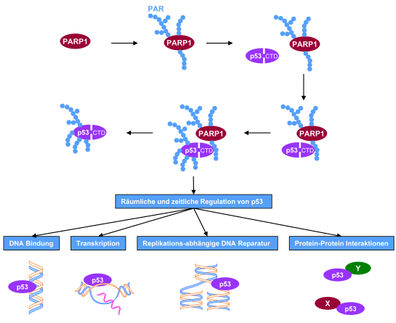Biologists find way to reduce stem cell loss during cancer treatment
Advertisement
Biologists at the University of California, San Diego have discovered that a gene critical for programmed cell death is also important in the loss of adult stem cells, a finding that could help to improve the health and well-being of patients undergoing cancer treatment.
"During chemotherapy or radiation therapy that kills cancer cells by inducing significant DNA damage in their genomes, one of the main side effects for human cancer patients is the depletion of their own adult stem cells, particularly the ones responsible for making new blood and intestine cells. So these patients become anemic, lose appetite and a lot of weight," said Yang Xu, a professor of biology at UC San Diego who headed the team that published its findings in this week's advance online issue of the journal Nature Cell Biology . "If we can prevent the loss of stem cells during cancer therapy, that would be very beneficial for these patients."
Scientists have long known that when normal cells accumulate significant amount of DNA damage, such as during cancer therapy, the tumor suppressor p53 is activated, which leads cells to stop dividing, go into hibernation and undergo a programmed cell death called apoptosis. They've also known that a gene called Puma, an acronym for "p53-unregulated modulator of apoptosis," is critical for p53 to initiate the cell death of DNA-damaged cells.
Using genetically modified mice with persistently activated p53, Xu and his colleagues discovered that, once activated, p53 depletes various adult stem cells, including the ones that are responsible for generating new blood and intestine cells. In addition, Puma is critical for this p53-dependent depletion of various adult stem cells.
"Since p53 is a critical tumor suppressor, you cannot suppress p53 to prevent the depletion of adult stem cells since it will induce cancer," said Xu. "But you can target Puma to prevent p53-mediated depletion of adult stem cells, because a Puma deficiency does not promote the development of cancer. This gives us a nice target for preventing the p53-dependent depletion of adult stem cells in response to DNA damage. If you can suppress Puma function, you can rescue a lot of the adult stem cells that would otherwise be lost after the accumulation of DNA damage such as during cancer therapy."























































